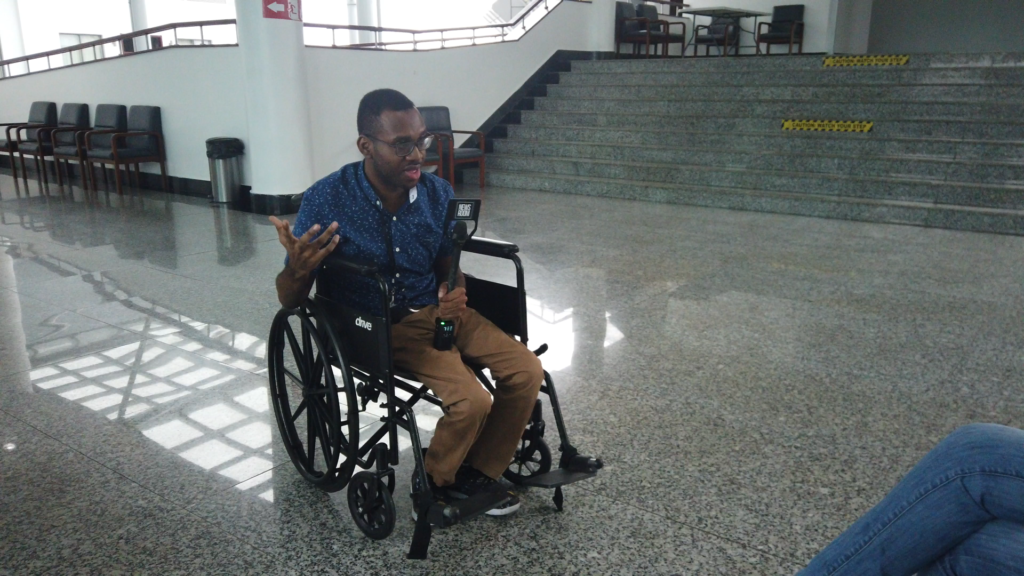By Vishani Ragobeer
Ayeni Olutunde has served Guyana as an Officer in the Guyana Defence Force (GDF) for 34 years. Nowadays, you might see him weeding his yard or mixing cement for a construction project- both tasks he is well able to do despite having prosthetic legs.
Like many other amputees and persons with disabilities, however, discrimination continues to an additional challenge they must contend with.
Olutunde was one of several persons who gave testimonials about rehabilitation services in Guyana at the launch of the 2024 “Rehab Week” on Sunday at the Umana Yana in Georgetown.

He was effusive in his praise for the Ptolemy Reid Rehabilitation Center, the place he got his prosthetic legs from.
But it was the journey to and from the centre for rehabilitation services that really opened his eyes to the challenges persons with disabilities grapple with while accessing public and private transportation.
“I would like to stress that one of the things I noticed going to the Ptolemy Reid Center that amputees are grappling with and suffering with is that when you call a taxi and they hear ‘wheelchair,’ it’s $1,000 more.
“When you flag a vehicle down, people don’t want to pick you up,” he lamented.
This isn’t the first time limited access to transportation and discrimination on the roadways has been raised by someone with a disability.
As far back as 2008, a survey conducted by the National Commission on Disability found that transport is a major hurdle for persons with disabilities.
In a 2018 study on the education of individuals with disabilities in Guyana, Keon Cheong, Ryan Kellems, Margaret Andersen and Katie Steed pointed out that many students with disabilities in Guyana do not have access to “adequate transportation for healthcare or related services” and oftentimes, have to undertake distant journeys to access the services they require.
Gabriel Gilkes, a wheelchair user, told the News Room that travelling around Guyana and accessing most buildings are challenging ventures. According to him, more accessible infrastructure is needed to support persons with disabilities like him.
“There should be more changes but not just for persons like myself but for persons who are visually impaired but for persons who are deaf and so,” Gilkes said in a News Room interview published in January 2023.

So what can be done?
Well, for nearly 15 years now, Guyana has had its Persons with Disability Act. Section 5, Sub-Section 8 (Accessibility) of the Act sets the foundation for a Public Transportation Policy aimed at meeting the needs of persons with disabilities.
But that hasn’t exactly changed the status quo.
So Oluntunde called on Health Minister Dr. Frank Anthony- who also attended the launch of Rehab Week- to intervene in some way, possibly by engaging drivers or by engaging his cabinet colleagues on a strategy to eradicate the discrimination.
The GDF officer emphasised that “life isn’t finished” for persons with disabilities. What is lacking, he opined, is “a little more patience from the able-bodied public.”
The Health Minister responded to Olutunde’s requests.
“We have to work on our society… Why would a taxi man want to not pick up somebody with a disability?” Dr. Anthony questioned.
For him, any intervention from the government wouldn’t be very helpful unless there is widespread understanding and empathy among the general population. He vowed to help with continued advocacy for greater support for persons with disabilities.
“… hopefully with all of us advocating and working with people to change, we will have this change,” he said.
In the meantime, Olutunde tries as best as he can to get around. He, very seriously, speaks about driving his car with his amputated legs but appreciates the reality that not every person with a disability can do so.












